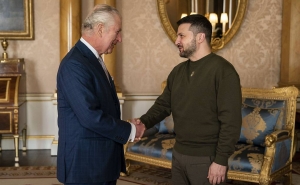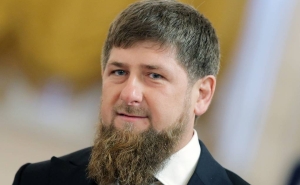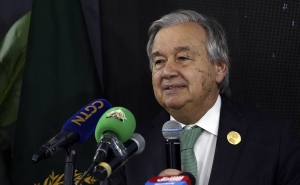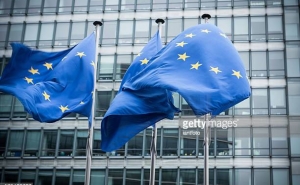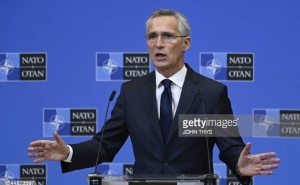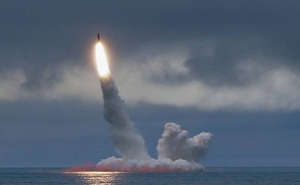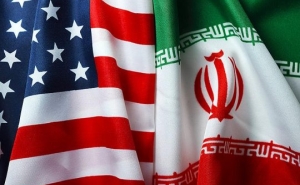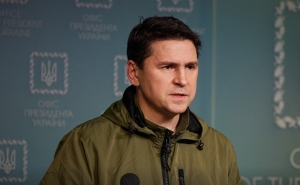 Constitutional Changes in Ukraine: What Do the Sides Want?
Constitutional Changes in Ukraine: What Do the Sides Want?

The political development in Ukraine the other day resulted in the mass clashes and in the attacks of the extremist forces at the Verkhovna Rada of Ukraine, where the draft amendments to the Constitution were discussed. Let’s shed light on the aim of constitutional changes as well as on the positions of the sides on those changes.
The necessity of the constitutional changes was defined in the Minsk Agreement aimed at overcoming the Ukrainian crisis. The agreement states that "until the end of 2015, a new constitution should be adopted in Ukraine, the main components of which should be decentralization (taking into consideration peculiarities of Donetsk and Lugansk that were agreed by the representatives of those regions), as well as the adoption of permanent legislation on the status of Donetsk and Lugansk."
The authorities of Ukraine at present aim at not disrupting settlement process of the crisis at the same time not being prone to big concessions.
For the wide cycles as well as for the extremist segments of the society giving special status to Donetsk and Lugansk is not acceptable. They perceive it as a step towards federalization and a threat to Ukraine’s territorial integrity. Consequently, the most extremist sector of Maiden views it as a too big concession by Kiev and blames Poroshenko for betraying national interests of Ukraine. In this case those forces of Maiden, who after the formation of the government were marginalized unable to satisfy their political ambitions, also have their role. It is not by chance that one of the most active participants in August 31 protests was Tyahnybok, who along with Klitschko and Yatsenyuk, aimed at heading Maiden revolution.
In their turn the representatives of Donetsk and Lugansk Democratic republics strive for more autonomy and for utmost stabilization of that autonomy. They demand the special status of Donetsk and Lugansk to be defined in the Constitution and not in a separate law. In order to make a change in the law the pure majority of the voices in the Parliament will be needed, while changes in the Constitution will be much more difficult.
Poroshenko, in his turn, tries to meet the demands of Minsk agreement without defining special status for those two regions. Present package of draft amendments presupposes structural changes in local government and more power for local governing bodies. In order to avoid directly mentioning the status of Donetsk and Lugansk in the final provisions of the Constitution, only the existing administrative peculiarities of those regions are defined which are set in the separate law.
Besides, the constitutional amendments proposed by Poroshenko, along with extending the power of local governing bodies, preserves presidential leverages on them. The position of a prefect, who will be appointed by the president, is supposed to be established which will oversee the activities of municipalities and will be authorized to suspend their activities in case they do not correspond with the Constitution. In addition, in case they take decision that represent a threat for the country’s territorial integrity, president will be authorized again to suspend the decision and even to remove the head of the community from his/her position calling for early elections.
The society is also concerned by the absence of public discussion and hearings on the constitutional changes and by the fact that they are not confirmed by a referendum. However, it can be explained by the unwillingness to cause another tension in the country in the face of present unstable political atmosphere and to reduce the possibility of the process failure. The external pressure on Kiev is also high because both Russia and the West demand to follow the logic of the Minsk agreements and to fulfill all the undertaken obligations.
The change in the Constitution and status of Donetsk and Lugansk present one of those cornerstones the agreement around which will result in the real progress in the resolution of the crisis. However, it demands real political and mutual trust, about the absence of which present situation speaks. It is hard to believe that Poroshenko’s political capital and reputation will be enough both externally and internally to make this constitutional change acceptable.
Other materials on this subject
- Macron, Scholz and Draghi arrive in Kyiv for Historic Visit This is a message of European unity addressed to Ukrainian men and women, of support.
- EU Prolongs Sanctions against Russia for One Year On June 11, ambassadors of EU member states agreed to prolong restrictive measures against Russia on Crimea. The decision is formalized by a "written procedure" without discussion.
- Ukrainian President Zelensky Extends Ban on Russian Social Networks Sanctions were imposed on several TV channels and Internet companies, including 1C, ABBYY and their Ukrainian subsidiaries. In addition, Russia’s VKontakte and Odnoklassniki social networks, Mail.ru...
- Zelensky Calls Extra NSDC Meeting On Situation In Donbas President of Ukraine Volodymyr Zelensky has called a meeting of the National Security and Defense Council (NSDC) to decide on Ukraine’s further steps following the enemy attack on the positions of the...
- Next Normandy Summit to be Held in Four Months, Macron Says "We are confident that this work on restoring peace and trust is very important," he stressed. Macron noted the significance of the discussion that "has finally been held seriously in the last three years.".
-
 17:08
17:08The regular session of the Anti-corruption Policy Council takes place in Jermuk
-
 15:05
15:05The Prime Minister sends congratulatory messages to the supreme leader of Iran and the President of Iran
-
 11:11
11:11Armenia sends earthquake aid to Turkey
-
 10:43
10:43Commemoration of the Pontiff St. Sahak Partev
-
 09:16
09:16Some roads are closed and difficult to pass in Armenia
-
 19:55
19:55Phone conversation of the Foreign Minister of Armenia with the U.S. Assistant Secretary of State for European and Eurasian Affairs
-
 18:30
18:30Prime Minister Pashinyan and President Khachaturyan meet
-
 18:20
18:20Ararat Mirzoyan with Co-Chairman of the OSCE Minsk Group of France Brice Roquefeuil
-
 17:01
17:01Humans could land on Mars within 10 years, Musk predicts
-
 16:45
16:45France, US urge 'immediate' end to Nagorno Karabakh blockade
-
 16:01
16:01Blockaded Nagorno Karabakh launches fundraiser to support quake-hit Syria
-
 15:59
15:59Earthquake death toll in Turkey rises to 18,342
-
 15:43
15:43Ararat Mirzoyan Held a Telephone Conversation with Sergey Lavrov
-
 15:06
15:06French president rules out fighter jet supplies to Ukraine in near future
-
 14:47
14:475 Day Weather Forecast in Armenia
-
 14:44
14:44President Vahagn Khachaturyan wrote a note in the book of condolences opened in the Embassy of Syria in Armenia
-
 14:20
14:20Azerbaijan’s provocations impede establishment of peace and stability – Armenian FM tells Russian Co-Chair of OSCE MG
-
 12:57
12:57France representation to OSCE: Paris calls on Azerbaijan to restore freedom of movement through Lachin corridor
-
 11:40
11:40Command of Kosovo forces highly appreciated preparation of Armenian peacekeepers
-
 10:16
10:16The United States withdrew from sanctions against Syria for six months the provision of assistance after the earthquake
day
week
month
Humidity: %
Wind: km/h


